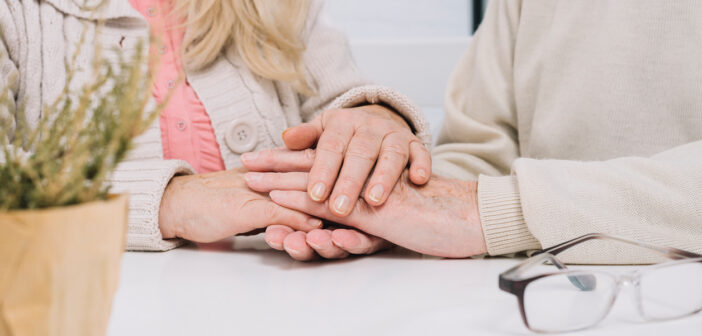After spending a lifetime with the one they loved most in the world, seniors who lose their partner face a mountain of grief and the death can be exceptionally hard on the survivor’s physical and mental well-being. Studies have shown that older adults who suffer the loss of a spouse have a 60%-90% chance of dying in the three months that follow. This phenomenon has been called the “Widowhood Effect.” There are many reasons why this may occur, but research has indicated four strong factors.
1. Tolls of Being a Caregiver
Older adults who have spent time caring for an ailing spouse sometimes neglect their own health. Needed medications and doctor’s appointments may be skipped or missed.
2. The Effects of Grief
There may be no bigger source of grief. After losing their lifetime companion, survivors can experience sleep loss, lower immunity, weight loss, and body inflammation that may lead to heart attack or stroke. The power of grief can cause actual physical harm to the heart.
3. Loneliness and Lack of Support
Going home to an empty house can be daunting and intensify the feelings of grief. Family and friends may be neglected and depression can set in quickly.
4. Changes in Living
The life that the survivor was used to may disappear. There may be added financial pressure, loss of transportation or difficulty keeping up with daily activities. The added stress can do even more damage, especially if they have to give up their home or possessions with emotional attachments.
In order to avoid even more tragedy, it is important to pay increased attention to the wants and needs of the survivor immediately following their loss. Getting them through the first 3-6 months is vitally important. While their grief may never end, helping them cope will make sure they continue on for the one they lost.
Here are a few tips to avoid the widowhood effect:
1. Provide Social Support
This mostly boils down to just “being there.” Be there for them. Help with daily chores, provide transportation, cooking, etc. Talk to the survivor and be ready to listen. This is the best time for hugs and warmth.2. Keep Them Busy
Keep them on the go and with things to do. After the funeral, keep them with you and keep going. Visit their friends and do the things they love to do. Take them to see the grandkids.3. Provide a Pet or Service Animal
We all know that a pet will never be able to fill the place of their spouse but providing them a living thing to take care of and grieve with can go a long way in avoiding the Widowhood Effect. Being responsible for the life of something else can help them stay responsible to their own needs.4. Help Them Seek Counseling
This may be needed and even the most stubborn of individuals can find a healthy coping mechanism for their grief by talking to a professional. Help them find local groups of widows/widowers who can empathize and accurately understand what they are going through.5. Acknowledge Their Loss
This is not something that a person can simply “get over.” With grief, there are no rules. A lifetime of love can lead to a lifetime of grief and those feelings should be acknowledged. Don’t pretend it didn’t happen. They lost the love of their life; helping them understand, process and cope with their feelings is one of the best things you can do for them.














